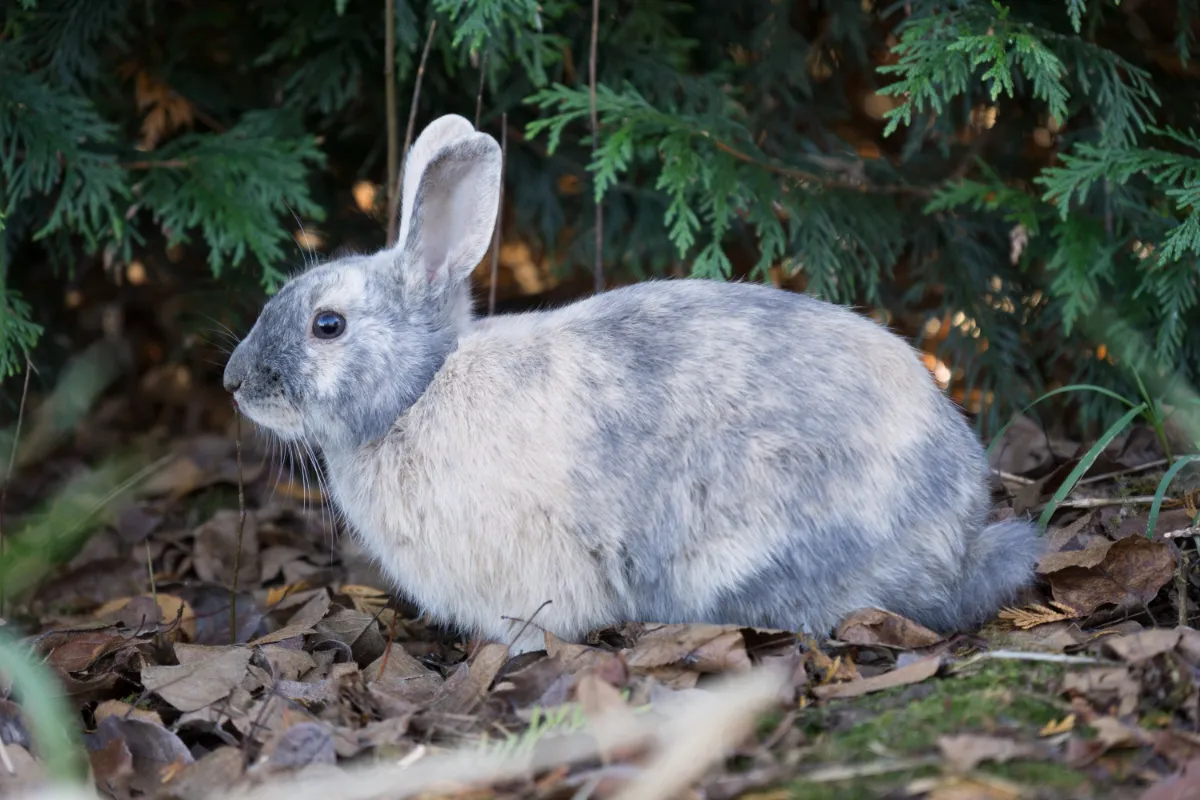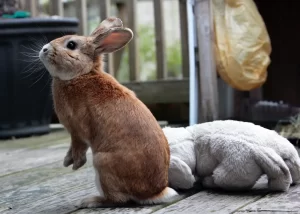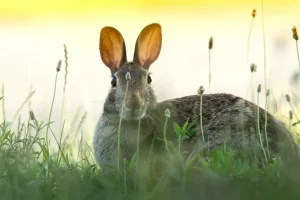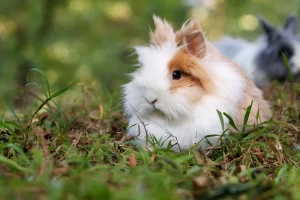Do you want to know the secret to keeping rabbits away from your garden?
Well, there’s one thing these furry creatures absolutely detest: certain smells.
In this article, we’ll reveal the strong scents that repel rabbits, from natural remedies to household products they can’t stand.
We’ll also explore the aromatic plants that rabbits hate, and even share some DIY rabbit-repellent recipes.
Get ready to protect your garden and bid those pesky bunnies farewell once and for all!
In This Article
- 1 Key Takeaways
- 2 The Strong Scents That Repel Rabbits
- 3 Natural Remedies to Keep Rabbits at Bay
- 4 Household Products That Rabbits Can’t Stand
- 5 Aromatic Plants That Rabbits Hate
- 6 DIY Rabbit-Repellent Recipes for Your Garden
- 7 Frequently Asked Questions
- 7.1 Can Rabbits Be Trained to Avoid Certain Scents?
- 7.2 Are There Any Scents That Rabbits Are Particularly Attracted To?
- 7.3 How Do Rabbits React to Artificial Scents or Air Fresheners?
- 7.4 Are There Any Scents That Are Harmful to Rabbits?
- 7.5 Can Rabbits Develop a Tolerance to Certain Scents Over Time?
- 8 Conclusion
Key Takeaways
- Peppermint and garlic are natural scents that rabbits hate and can be used as effective repellents.
- Planting marigolds, lavender, rosemary, daffodils, and mint can help repel rabbits due to their strong and unpleasant scents.
- Citrus-scented cleaning sprays, vinegar, garlic, onions, and chili peppers are household scents that rabbits dislike and can be used to deter them.
- Homemade rabbit-repellent sprays can be made using vinegar and cayenne pepper, which create an unpleasant environment and irritate rabbits.
The Strong Scents That Repel Rabbits
You should try using strong scents like peppermint or garlic to keep rabbits away from your garden. These natural repellent options have been found to be effective rabbit deterrents.
Rabbits have a highly developed sense of smell, and certain scents are known to repel them. Peppermint, with its strong aroma, can mask the scents of plants that rabbits find attractive and confuse their sense of smell. Garlic, on the other hand, contains a compound called allicin, which rabbits dislike.
Natural Remedies to Keep Rabbits at Bay
There are several natural remedies you can try to keep rabbits at bay, such as planting marigolds or placing cayenne pepper around your garden. Rabbits have a strong sense of smell, and there are certain scents that they dislike.
One natural alternative is to use predator urine, which can be purchased online or at garden centers. The smell of predator urine, such as fox or coyote urine, can deter rabbits from entering your garden.
Another non-toxic solution is to use strong-smelling herbs, such as lavender or mint, as a natural barrier. These scents can act as a repellent and discourage rabbits from approaching your plants.
Remember to reapply these natural remedies after rain or watering to maintain their effectiveness. By incorporating these natural alternatives, you can keep rabbits away from your garden without the need for harmful chemicals.
Household Products That Rabbits Can’t Stand
Try using citrus-scented cleaning sprays or vinegar to keep rabbits away from your household items. Rabbits, like many other animals, have a strong sense of smell and are sensitive to certain scents. They dislike the strong smell of citrus, such as oranges and lemons, as well as the pungent odor of vinegar. These scents can be an effective and non-toxic way to deter rabbits from entering your home and causing damage to your belongings.
In addition to citrus-scented cleaning sprays and vinegar, there are other common household scents that rabbits dislike. These include garlic, onions, and chili peppers. Incorporating these scents into your cleaning routine or placing them strategically around your home can help keep rabbits at bay.
It is important to note that while these scents are disliked by rabbits, they aren’t harmful or toxic to them. This makes them a safe and environmentally friendly option for deterring rabbits from your home.
Aromatic Plants That Rabbits Hate
If you want to repel rabbits from your garden, consider planting aromatic plants such as lavender or rosemary, as they emit scents that rabbits find repulsive. These natural rabbit deterrents can effectively keep those pesky bunnies away from your precious plants.
Here are some other effective rabbit repellents to consider:
- Marigolds: These vibrant flowers not only add beauty to your garden but also emit a strong odor that rabbits dislike.
- Daffodils: The strong scent of daffodils is another deterrent for rabbits, making them think twice before munching on your garden.
- Onions: Planting onions around your garden can help repel rabbits. The pungent smell is unappealing to them.
- Garlic: Like onions, garlic has a strong odor that rabbits find repulsive. Planting garlic bulbs can help keep them away.
- Mint: The strong smell of mint plants can deter rabbits from entering your garden, making it a great natural repellent.
Using these natural rabbit deterrents and effective rabbit repellents can help protect your garden from furry intruders.
DIY Rabbit-Repellent Recipes for Your Garden
You can easily create your own rabbit-repellent spray for your garden by combining vinegar and cayenne pepper. Rabbits have a strong sense of smell, and certain scents can be very effective in deterring them from your precious plants. Vinegar, with its strong and pungent odor, can create an unpleasant environment for rabbits, making them less likely to venture into your garden. Cayenne pepper, on the other hand, contains a compound called capsaicin, which rabbits find extremely irritating. By combining these two ingredients, you can create a powerful homemade rabbit deterrent that is non-toxic and safe for both your plants and the environment. Here is a simple recipe for making your own rabbit-repellent spray:
| Ingredients | Amount |
|---|---|
| Vinegar | 1 cup |
| Cayenne Pepper | 2 tablespoons |
| Water | 1 quart |
Mix all the ingredients together and pour the solution into a spray bottle. Shake well before use and apply the spray on the plants you want to protect. Repeat the application every few days or after rain. Remember to reapply after watering your plants as well. This natural and homemade rabbit repellent will help keep those pesky rabbits away from your garden without harming them or using any toxic chemicals.
Frequently Asked Questions
Can Rabbits Be Trained to Avoid Certain Scents?
You can train rabbits to avoid certain scents by using scent training techniques. Scent deterrents are effective in protecting gardens from rabbits. It’s important to understand what smells rabbits dislike to create an effective training program.
Are There Any Scents That Rabbits Are Particularly Attracted To?
Are there any scents that rabbits are particularly attracted to? Yes, rabbits are naturally drawn to certain smells. Harnessing these scents can be beneficial for training or providing enrichment for your furry friend.
How Do Rabbits React to Artificial Scents or Air Fresheners?
Artificial scents and air fresheners can have a negative impact on rabbits. Scented candles may alter their behavior and essential oils should be used cautiously in their habitats to avoid any harm.
Are There Any Scents That Are Harmful to Rabbits?
Have you ever wondered if there are scents that could harm rabbits? Well, when it comes to our furry friends, it’s important to be cautious. Some scents can be harmful, but there are also natural repellents that rabbits dislike.
Can Rabbits Develop a Tolerance to Certain Scents Over Time?
Rabbits may become desensitized to certain scents over time, but they can also develop allergies to specific smells. It’s important to introduce new scents gradually and monitor their reactions for any signs of discomfort.
Conclusion
In conclusion, rabbits have a strong aversion to certain scents, such as vinegar, garlic, and hot peppers. These natural remedies, along with household products like ammonia and mothballs, can help keep rabbits away from your garden or home.
Additionally, planting aromatic plants like marigolds, lavender, and mint can also deter rabbits.
By using these repellents and incorporating DIY rabbit-repellent recipes, you can create a rabbit-free environment and protect your plants and property.





